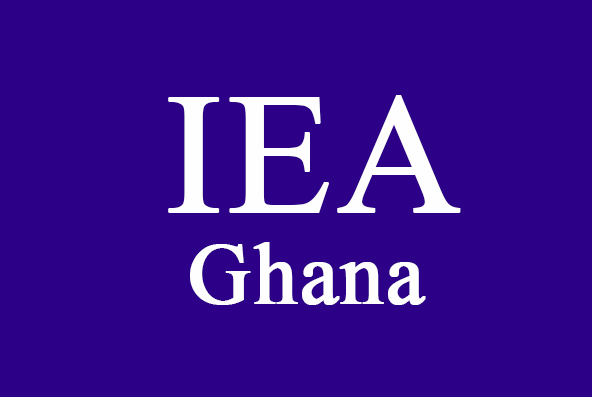The Institute of Economic Affairs (IEA) wants the economy to grow between 7% and 10% over the medium term, urging the government not to allow others such as the International Monetary Fund to impose unambitiously low growth rates on the country.
According to the IEA, the growth targets captured in Ghana’s Economic Credit Facility (ECF) programme is not ambitious enough.
"Ghana’s ECF programme contains macroeconomic data for the entire programme period, 2023-26, which is quite revealing. Real GDP [Gross Domestic Product] growth is projected to decline from 3.1% in 2022 to just 1.5% in 2023, recovering slightly to 2.8% in 2024 and then to 4.7% in 2025 and 5.0% in 2026. These growth projections are, however, not sufficiently ambitious”, it disclosed in its State of the Economy Report and the 2024 Budget Expectations.
“We have abundant natural and human resources that can be leveraged for higher growth. We can scale up public and private investment. We can import additional capital and technology that we lack through Foreign Direct Investment (FDI) and foreign labour. Put together, we should be able to grow the economy between 7-10% over the medium-term. We should not allow others to impose unambitiously low growth rates on us when we know we have the potential to grow much faster”.
It added Ghana only need to harness that potential through the right policies.
IMF data shows that Ghana recorded higher growth than the Sub-Saharan Africa (SSA) average between 2011 and 2021, which the IEA described as remarkable. In the period 2022-24, however, Ghana’s real GDP growth dipped below the SSA average, indicating that Ghana has been more severely impacted by external shocks than the rest of the SSA.
The IEA believes the government should institute policies to turnaround the economy to grow at higher rates.
Government revenue to GDP
The government revenue to GDP is projected in the ECF to increase from 15.7% in 2022 to 16.8% in 2023, 17.3% in 2024, 17.8% in 2025 and 18.7% in 2026. This implies an increase of 3.0 percentage points over the 4-year period, 2022-26.
It is being touted in the programme as a remarkable achievement, but the IEA said Ghana cannot celebrate this when its middle-income peers have revenue/GDP of 25-30%.
“We have repeatedly argued that we have the capacity to raise our revenue/GDP significantly within a short space of time. We only need to do the right things, such as introducing more innovative taxes, leveraging technology to expand and accelerate collections, roping the informal sector into the tax net, strengthening tax administration to stem evasion and improve compliance, plugging the several loopholes in the tax system and checking tax fraud and corruption”, it added
Latest Stories
-
Board membership is about direction, not just prestige – Chief of Staff
11 minutes -
End the Scholarship Waste & Invest in Skills That Build Nations
35 minutes -
Ablekuma North chaos: Tony Aidoo slams police failure
46 minutes -
6 months is long enough for Mahama to fight galamsey – Tony Aidoo
55 minutes -
Be guided by steps to support ongoing recovery without compromising gains – Dr. Asiama tells MPC members
56 minutes -
NSMQ 2025: Bawku SHTS withdraws from Zonal Championship after renewed violence in area
1 hour -
A/R: GNFS rescues 16 accident victims in pre-dawn crash at Adansi Kyeaboso
1 hour -
Deploy 1060 soldiers to end ‘galamsey’ menace – Tony Aidoo to government
1 hour -
NSMQ 2025: Ghana SHS returns after early exit as Northern Zonal Championship begins
1 hour -
Is President John Dramani Mahama the New Sheriff in town?
1 hour -
Piwak Natural Health returns for 2025 JoySports Invitational Tournament
2 hours -
EAG receive invitation to 2025 Esports World Cup in Riyadh
2 hours -
Payaza earns triple credit rating in major win for African fintech
2 hours -
I don’t trust OSP; he doesn’t know what he is doing – Tony Aidoo
2 hours -
Regional Maritime University receives workboat, cash support from MODEC
2 hours

